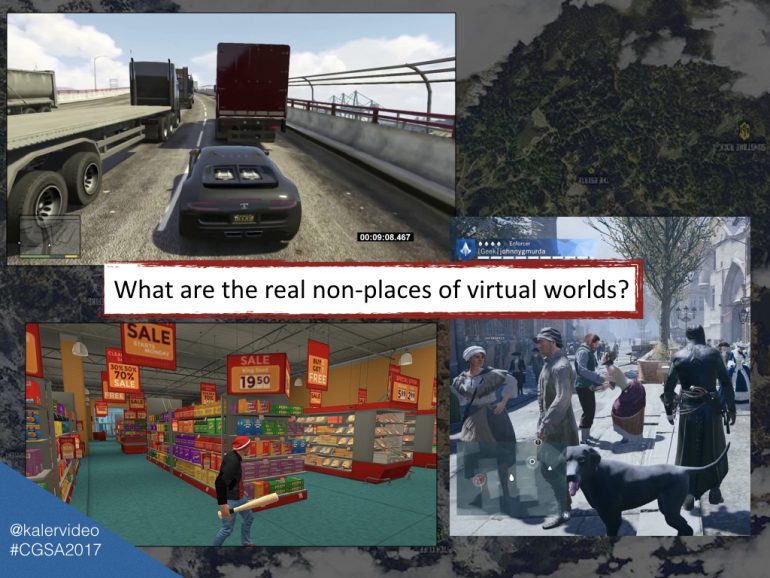
"In 1927 cultural critic Walter Benjamin began planning for a small collaborative newspaper article on the iron and glass arcades of 19th Century Paris. Believing the work would only take a few weeks to complete, he found that it soon blossomed into a much larger project that ran through the Surrealist movement to experiment with techniques of collage in literature and history. (Eiland and McLaughlin ix-x) As time progressed, the work grew and mutated, and several related publications and seven years later Benjamin lamented in a letter to a friend that ""not a syllable of the actual text"" existed yet. (Eiland and McLaughlin xi) Ultimately, what became The Arcades Project outlived Benjamin himself and remains incomplete at over 1,000 pages today. Nearly 30 years after the initial publication of the collected Arcades Project, digital media scholar Michael Nitsche published Video Game Spaces in 2008. In his introduction, Nitsche warns that interactive media and ""their most prominent and diverse representatives, video games,"" have deeply unsettled traditional media theory. (Nitsche 10) Nitsche sees this disruption at its most pronounced in the environments of 3D game worlds, where games ""stage our dreams and nightmares and seem to get better at it each year."" (Nitsche 1) In fashion similar to the way the reader of The Arcades Project must cobble together the story of the 19th Century European city, Nitsche claims that the players of 3D games piece together large and small elements of the game narrative by inhabiting and interacting with the virtual environment. What's clear from looking at both works together is that as impossible a task it was for Benjamin to collage together a picture of fin de siècle urban life in Paris from archival materials, theoretical observations, and cultural commentary, it is similarly monumental for Nitsche to chart the growth and future of video game spaces by centralizing focus on player experience and generated narratives. Ultimately, Nitsche tells us, his work is to explore the new universe opened up by the introduction of the third dimension to games. My project in this paper is to offer an expansion on work into digital worlds using a strategy of tactics stitched together from Benjamin, Nitsche, and a selection of other scholars and theories. I have begun by offering the examples of The Arcades Project and Video Game Spaces because they call to mind two extremely important caveats that must be stated before embarking on such a task: one, that such a work as trying to critique even a small section of a city is a project without end; and two, that while we may perceive the environments of video game worlds as entirely new, there's much we can learn about how to analyze these spaces from works on the spaces of the 'real' world. The end goal of the paper will be to introduce a number of methodological and theoretical approaches that players and scholars will find useful in traversing videogame environments. "
This paper was presented at the Canadian Game Studies Association, Congress, in Toronto, May 31-June 2, 2017.
